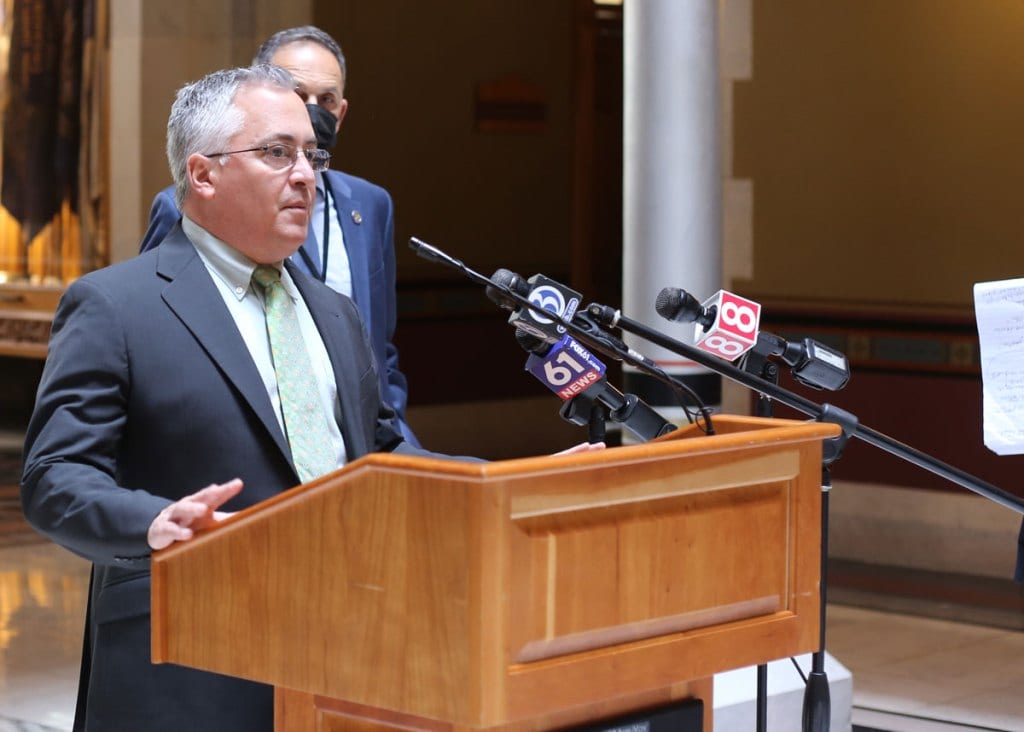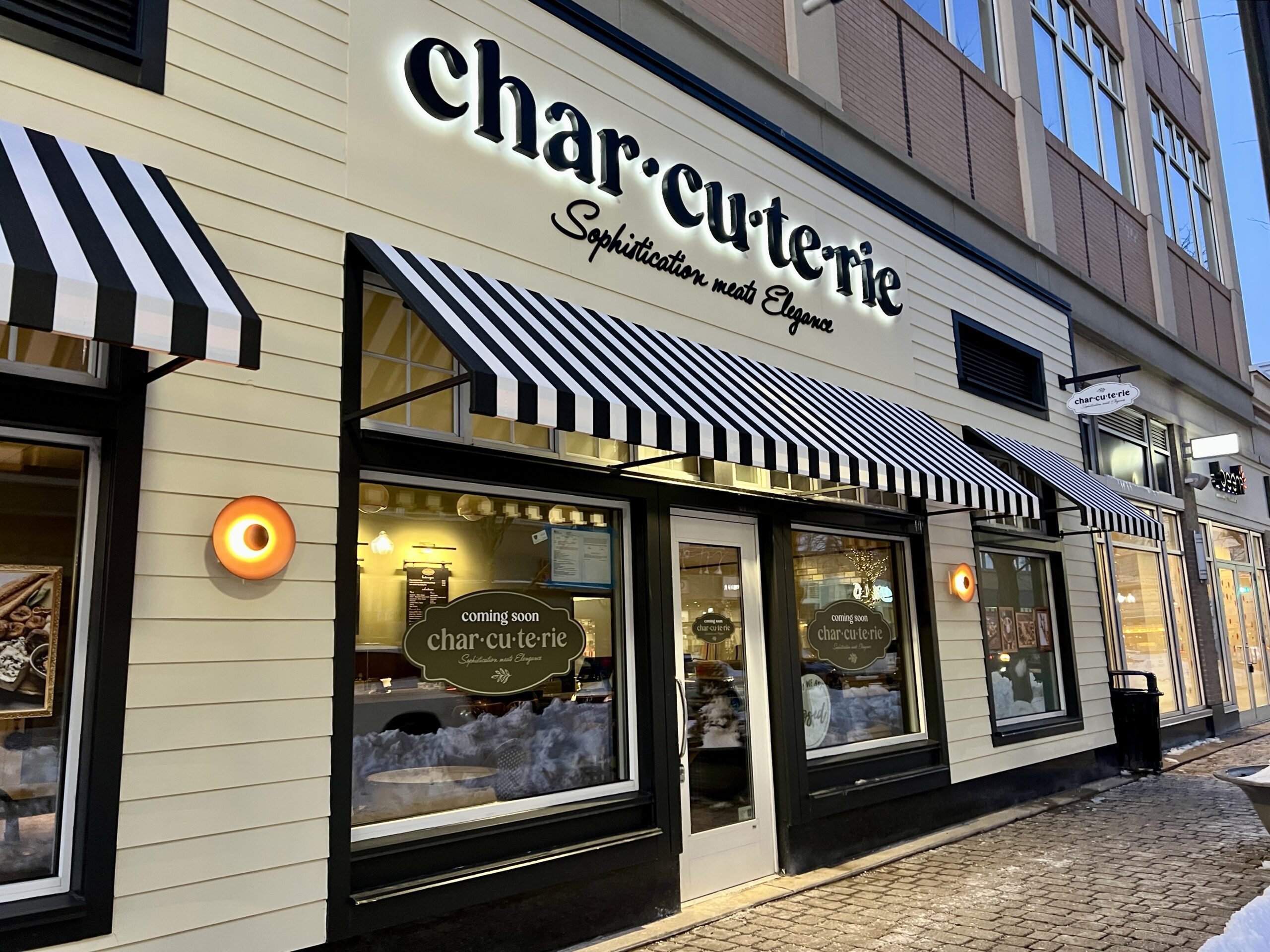House Passes Early Voting Amendment

Audio By Carbonatix

House Speaker Matt Ritter. Courtesy of CTNewsJunkie.com
If the measure is approved by the Senate, voters will see a question at the polls next year on whether to allow early voting in Connecticut.
By Hugh McQuaid, CTNewsJunkie.com
In a bipartisan vote Thursday, the House advanced the first of two expected constitutional amendments to let Connecticut voters weigh in on the state’s election laws through a referendum question on early voting.
Lawmakers are considering two voting resolutions this year. Both would put ballot questions before state voters to consider changing the constitutional language on Connecticut’s election policies.
The House passed one of those resolutions Thursday on a bipartisan 115 to 26 vote. If the measure is approved by the Senate, voters will see a question at the polls next year on whether to allow early voting in Connecticut.
During a debate on the resolution, House Majority Leader Jason Rojas said the proposal would give Connecticut residents the opportunity to join the 44 other states that allow some form of early voting. Rojas said the change could help residents who lead sometimes busy and unpredictable lives.
“Unpredictability on any given day, particularly on Election Day, should not be a reason for someone to not be able to vote,” he said. Rojas said the question would allow voters to make the call. “Once the voters speak, we will engage in a transparent and open debate on how exactly to allow early voting.”
However, some lawmakers had concerns about the wording of the question. Some said the proposed change to the constitution was too vague. Others suggested the legislature should focus on updating its voter roll systems before extending its voting period.
“I think we’re putting a fresh coat of paint on a car that isn’t running well. I think we need to fix that voter registration database and make sure things are working perfectly there so that this can work the way it should,” Rep. Bill Buckbee, R-New Milford, said.
The House vote was not a partisan one. Many Republicans, including House Minority Leader Vincent Candelora of North Branford supported the resolution. Candelora said he understood the concerns of his colleagues who opposed the measure.
“I think they are valid. Should this provision go on the ballot and succeed, I think we will have robust discussions trying to address those issues. With that, I’m certainly going to support this measure,” he said.
The bipartisan harmony is unlikely to be repeated when Democrats raise the resolution to let voters consider easier access to absentee ballots. That debate is expected early next week. And the question seems unlikely to land before voters next year. The proposal requires a 75% majority vote to appear at the polls in 2022. That means supporters need Republican votes.
Given the partisan dissidence that has grown around the use of absentee ballots, support from the minority party seems unlikely. However, House Speaker Matt Ritter and other proponents made their case Thursday morning outside the state Capitol Building.
“At the end of the day folks, Connecticut’s constitution puts us in a bad place. We are not in good company,” Ritter told reporters. “So we have an opportunity today, in the next couple of days, to make sure the voters have an opportunity to weigh in on early voting and no-excuse AB.”
Ritter and Rojas said they were confident that all 97 of their members would vote in support of both resolutions. However, without 114 votes, the absentee ballot resolution would need to be raised and passed again in another year, delaying a referendum vote until at least 2024.

House Minority Leader Vincent Candelora. Photo credit: Christine Stuart, CTNewsJunkie.com
During a separate press conference Thursday, Candelora said his party wanted the resolution to also contain provisions on voting safeguards.
“While we’re trying to balance the ability for people to have access to voting, we also need to be mindful of protecting the integrity of the vote,” he said. “Because just as much as it’s important for people to be able to vote, individuals need to be confident that there’s integrity in our voting system.”
In prior years, some Republicans have supported easing restrictions on absentee ballots. Lawmakers succeeded in getting the question before voters in 2014, but they rejected it at the polls. Candelora said a decision last year to mail applications for the ballots to all voters caused Republicans to reconsider the policy.
“That behavior invites fraud,” he said. “That behavior also invites for mistakes.”
Two-thirds of other states permit voters to use absentee ballots without requiring an excuse, according to the National Conference of State Legislatures. Ritter said that voter fraud was such a rare occurrence that it did not make sense to disenfranchise lawful electors based on the actions of a tiny minority of people.
“It is such an unlikely crime that we should enfranchise the 99.999% of good actors in our state and not punish everybody for that,” he said.
Republished with permission from CTNewsJunkie.com, all rights reserved.
Like what you see here? Click here to subscribe to We-Ha’s newsletter so you’ll always be in the know about what’s happening in West Hartford! Click the blue button below to become a supporter of We-Ha.com and our efforts to continue producing quality journalism.



